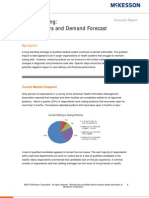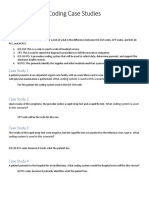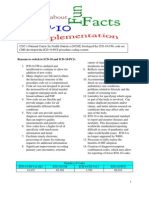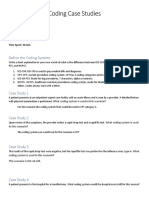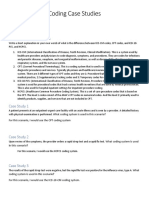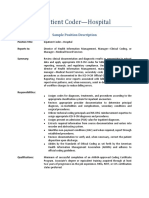0% found this document useful (0 votes)
460 views2 pagesMedical Coding Interview QA For Freshers
The document is a Q&A format interview guide for freshers in medical coding, covering essential topics such as coding systems (ICD-10-CM, CPT, HCPCS), handling insufficient documentation, and understanding upcoding and downcoding. It also addresses practical scenarios like claim denials and staying updated with coding regulations. Additionally, it highlights the importance of HIPAA compliance and familiarity with coding software.
Uploaded by
Minha KhanCopyright
© © All Rights Reserved
We take content rights seriously. If you suspect this is your content, claim it here.
Available Formats
Download as PDF, TXT or read online on Scribd
0% found this document useful (0 votes)
460 views2 pagesMedical Coding Interview QA For Freshers
The document is a Q&A format interview guide for freshers in medical coding, covering essential topics such as coding systems (ICD-10-CM, CPT, HCPCS), handling insufficient documentation, and understanding upcoding and downcoding. It also addresses practical scenarios like claim denials and staying updated with coding regulations. Additionally, it highlights the importance of HIPAA compliance and familiarity with coding software.
Uploaded by
Minha KhanCopyright
© © All Rights Reserved
We take content rights seriously. If you suspect this is your content, claim it here.
Available Formats
Download as PDF, TXT or read online on Scribd
/ 2




















